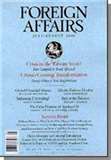The columnist Ross Douthat suggested that American Christians must find a way “to thrive in a society that looks less and less like any sort of Christendom—and more and more like the diverse and complicated Empire where their religion had its beginning . . .” (From The New York Times News Service, 2010.)
We have witnessed an extreme makeover of the Christian-oriented western culture that was called Christendom. Christianity has lost much of its influence in the larger society. Much conflict in the stories I write focuses on the struggles of American Christians to deal with the changed views that surround them. Often the characters live for a time in other cultures where religion remains a part of everyday life.
They understand, as I did after similar experiences, how closely intertwined are religion and government in some non-Western nations. It is a part of the national identity of those societies. Should one group’s religion be forced on a society to preserve that identity?
Is preservation what drove the early Christians? Perhaps one key is found in Douthat’s observation that today’s society is much like that of the Roman Empire. The Christians of that day did not try to change the Empire with a political movement. Instead they caused the Empire to change itself because their way of living attracted people to Christianity.
Once Christianity became compulsory for all, it lost much of its power. Small groups within the state churches dared live the radical lifestyle of Christ and pass on the Christain faith. The outer life, which springs from the life within, cannot be forced.



 Christian history fascinates: all the advances and retreats, deaths and resurrections of the church over the centuries. Such understanding allows perspective in these times of waning Christian influence in the old countries of “Christendom.”
Christian history fascinates: all the advances and retreats, deaths and resurrections of the church over the centuries. Such understanding allows perspective in these times of waning Christian influence in the old countries of “Christendom.”